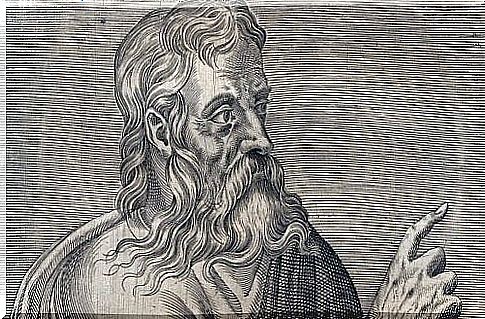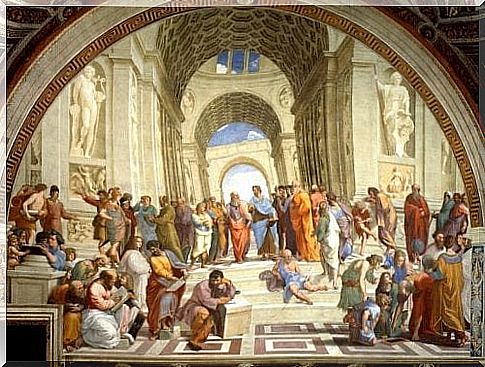Seneca And His Secret Against Anxiety

Believe it or not, we’ve been talking about anxiety since the days of Seneca, at the dawn of the Christian era. This term was not used and there was no psychological science as such. However, the philosophers of the day were also concerned with thinking about the behavior of human beings, so they drew some essential lines on the best way to live.
Seneca lived through a very difficult period. He was Senator of the Republic in the Roman Empire at a time of intrigue and decline. Seneca knew the governments of Tiberius, Caligula, Claudius and Nero. He was even the tutor and counselor of the latter, which is undoubtedly one of his worst memories.
In addition, Seneca was one of the main representatives of the philosophical school of the Stoics. Members of this current were particularly interested in reflecting on morals and customs. It made little sense to do so as this era was characterized by enormous ethical degradation, which led to the destruction of the empire.
Seneca and the Stoics
Stoicism was born in Greece, by the philosopher Zeno de Citio. This current achieved great popularity, and many of its principles had an impact on nascent Christianity. The Stoics advocated above all a way of life marked by moderation. “ Nothing is enough for those who have too little, ” they said.

They dealt with an infinite number of subjects, but they captured the interest of their contemporaries in ethical problems. They promurent the idea that we can achieve the peace inside if we live on the margins of the excess material comfort. They maintained that a reasonable and righteous life was a happy life.
The Stoics rejected the idea that man lets himself be carried away by passions . They saw them as a source of degradation and suffering. The Stoics advocated self-control because they believed that human beings could live according to reason. They also said that there is nothing good or bad in itself, that everything becomes harmful when we go overboard.
What Seneca says about anxiety
Seneca, like a good Stoic, sought to live a virtuous life. He was a very intelligent man, who was always considered a privileged spirit by his contemporaries. His main work is called Letter to Lucilio . He wrote it down when he left Nero and began to be persecuted by him.
This great philosopher noted that many people lived immersed in concern. This is what we now call “anxiety”. He said on this subject: “ My advice is that you do not be unhappy before the crisis ; for it may be that the dangers in front of which you turn pale […] never reach you; they have certainly not yet manifested themselves ”.
Sénèque thus approaches what certain currents of psychology later certified: anxiety is this feeling of expecting the worst, without it having happened. In other words, it is a subjective perception that leads us to expect evil. To live according to something bad that has not yet manifested itself.

What we can learn from Seneca
Seneca added the following to the earlier reflection: “ We are used to exaggerating, or imagining, or anticipating pain ”. In other words, we start to suffer before we have a reason to. The mere fact of anticipating a pain attracts its unpleasant company to us, even though it has not yet or will not present itself.
Anxiety is like that. A state of anticipation which waits, while suffering, for the suffering to be consumed. A way of “being sick in anticipation”. We look forward imagining the worst. Anxious people fear being robbed, even if no one tries to do so. They believe that an earthquake could, at any time, cause their house to collapse. Or that the loved one, sooner or later, will abandon them.
We know that we are often able to get our minds to take shape (self-fulfilling prophecy). There is no reason for this to happen, but our conduct and blockages end up giving that direction to events . When this happens, we think it is a confirmation of what we believed from the start and not the consequence of our approach.
Suppose, for example, that we have unsuccessful references to a person. When we meet her, it wouldn’t be strange if we weren’t too close or too friendly. So the other person will end up treating us the same. We will thus confirm our suspicions, whereas we are precisely the ones who made them confirmed.
As Seneca suggests, maybe we should just be living instead of preparing ourselves all the time to live. Let it go. Let the events flow. To be in the present and not to live according to what will happen next.










